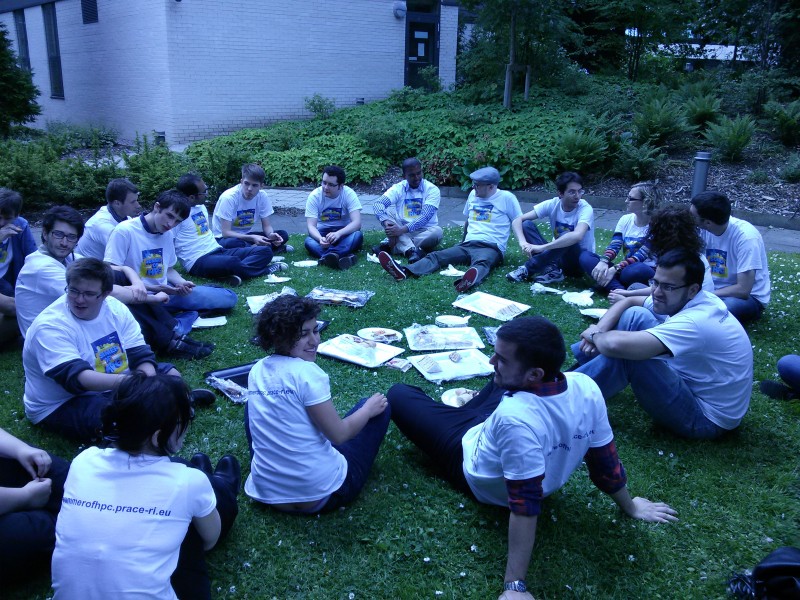SoHPC – The Week so far: Pollock Halls & OpenMP

The Summer of HPC Training week began on Sunday. Those of us more experienced in the kind of weather that can usually be expected in Edinburgh were pleasantly surprised when we arrived on Saturday. Those who hail from sunnier climes politely referred to the weather as “refreshing”. To future visitors of Edinburgh, you might be interesting in an odd story we came across about Greyfriars Bobby – the Faithful Edinburgh Dog.

Our purpose in Edinburgh was to attend the first part of the Summer of HPC, a program organised by PRACE, an organisation dedicated to sharing computational resources among European scientific institutions.
The first part of the program is based in Edinburgh, Scotland, and consists of a week of training in advanced computational and visualisation techniques. We all then disperse to a variety of institutions all across Europe to complete a range of projects all connected to high performance computing (HPC).
In short, HPC is the Formula 1 of computing. That is, the application of the most sophisticated computer technology to the most complex problems faced by science.
The aim of the program itself is to promote the idea of high performance computing to young students, the general public and policy makers through the use of social media.
On Monday and Tuesday we had our first OpenMP course training, taking place at JCMB (James Clerk Maxwell Building), Edinburgh University.
OpenMP is a technology standard to develop parallel multi-core applications and targets C/C++ or FORTRAN programming languages. The great advantage of OpenMP over other methods is that it is very easy to integrate into existing applications, without breaking anything or developing sophisticated code. For scientists who are looking to simplify their work and parallel algorithms this can be an advantage. Supported by most major hardware and software vendors, OpenMP seems to make the best choice to be cross-platform and general.
The course is given in two days format, lectures and hands-on practice combined, where the first day is dedicated for studying basic concepts and perform initial optimizations, and the second day is devoted to more sophisticated topics OpenMP has to offer.
One of the first examples we were given to analyze and optimize was the Mandelbrot set, a fractal algorithm above the complex numbers plane. Using basic OpenMP constructs it is possible to get a linear scale of performance. For example, a grid of 2000×2000 points was computed in 20 seconds in a sequencial implementation. When utilizing 2 cores for the task using OpenMP, total runtime was reduced to 10 seconds – a factor of x2.
An output of the Mandelbrot set is given below, as generated by the simulator:
On Wednesday & Thursday we will be taking an MPI course and on Friday a Visualisation course. Best Wishes and Have a Nice Week


All of us back home are envious of the “refreshing” weather! Keep those updates coming and enjoy. Safe travels.
Thanks Audrey :).